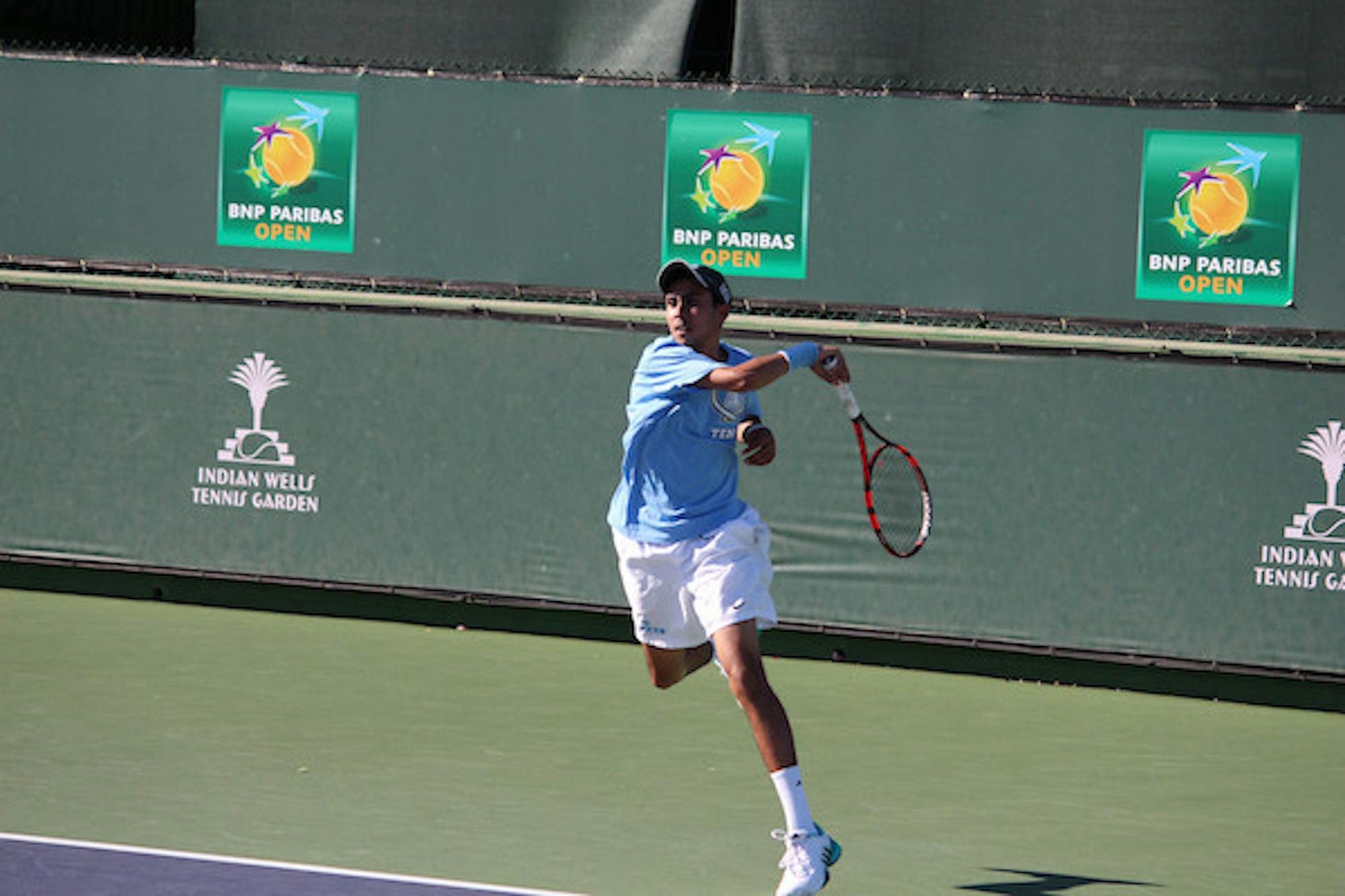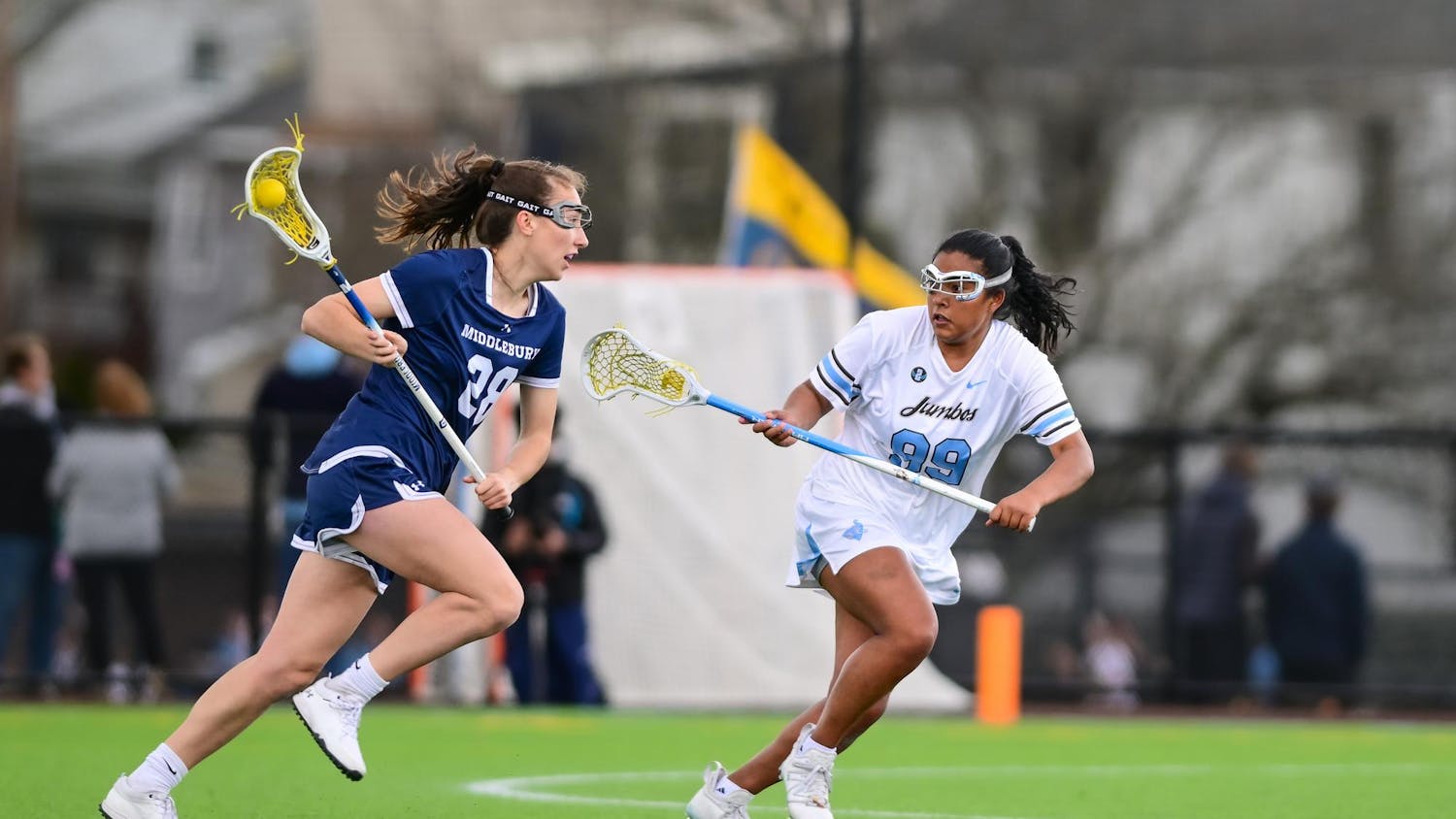The fatigue of the fall season caught up with the men’s tennis team last weekend at the MIT Invitational, which featured a 64-player singles bracket that brought together some of the best players in the NESCAC and from around the Northeast. The only Jumbo who managed to advance past the second round was junior Zain Ali, though Ali fell in third-round action.
The team saw some success in the first round, with four of the eight Jumbos competing in the tournament notching first-round victories. Ali won in straight sets, 6-1, 6-3 and then came out on top 7-6 (8), 6-2 in a tougher second-round battle. He put up a strong fight in the third round, but lost 6-2, 7-6 (6) to the eventual runner-up of the tournament, William de Quant of Middlebury.
First-years Nathan Niemiec, Zach Shaff and junior Danny Coran all won their first round match-ups in straight sets before falling in the second round, though to their credit, Niemiec lost to the tournament's eventual champion, Grant Urken of Bowdoin, while Coran battled to three sets before eventually falling 6-7 (3), 6-3, 6-4.
Sophomore Ethan Chen, junior Rohan Gupte, and first-years Benjamin Biswas and Jason Scanlon all lost in the first round.
Junior tri-captain Ben Battle, who was at the tournament but not playing due to the ongoing rehab of an ACL tear last year, cited fatigue as one of the factors that led to the sluggish results.
“People were maybe a little mentally and physically tired from competing so many weekends in a row,” Battle said.
Tufts fared worse in doubles competition, though that was not as unexpected. None of Tufts' three doubles teams were able to advance to the second round of the MIT Invitational. Throughout the fall season, the team has been experimenting with its doubles lineups and continued to do so this weekend.
“A huge part of doubles is getting used to playing with somebody, [and] we’ve been experimenting [with pairings],” Shaff said.
The relatively young team has seen an influx of new faces this year, and incorporating the six first-years into doubles pairings could be responsible for the poor doubles postings. While the talent to compete is there, the chemistry is not. Of the four doubles teams Tufts brought to the tournament, three of them included first-years in the pairings.
“None of the [first-years] have truly maximized our potential with doubles,” Shaff said.
With strong singles results at previous tournaments this fall and some solid play this weekend, there are promising signs that the Jumbos will earn much better results when it counts in the spring. Time, or lack thereof, is what is currently keeping the doubles results down.
In a standard Div. III competition, doubles play makes up one third of the matches, and any team looking to win a conference championship understands that having an advantage at doubles puts the team in the best position to win. With the short fall tennis season now over and the Jumbos turning to intense training in the winter months ahead, figuring out the doubles lineup will be crucial to finding success in the spring season.
The team now gears up for several months of conditioning and indoor work to get in shape for the spring.
“Winter looks like training," Battle said. "Training and running. Lots of tennis and lots of running.”
Battle also said he plans to rejoin his teammates and get back to fully working out over the winter.
Though the winter may be long, Shaff noted the importance of good team fitness.
“With Div. III [tennis competition], it's more [of] a war of attrition,” Shaff said.
The Jumbos will be facing teams looking to wear out their opponents and force mistakes through fatigue. The team hopes to be able to outwork and outrun any opponent come spring. According to Shaff, the Jumbos will also use the winter to master their home court advantage. With every indoor court being different, it will be important for the team to take the time to understand how the remodeling in Gantcher has impacted play.
The spring, which will feature NESCAC matches and high-stakes postseason play, always holds the most intrigue. The fall season held some surprises and perhaps a few disappointments for the team, but overall, the Jumbos view it as a success. Young players gained some early exposure to collegiate competition and injured and hurting players were able to use the time to recover.
Tufts will also certainly look more competitive when conference play rolls around as several of its upperclassmen will be active again, though many starting spots are still up for grabs, and some of the team's nine underclassmen could likely see prominent roles.
“A lot in terms of our starting lineup is going to be determined in the winter,” Shaff said.
The team opens conference play at home against Amherst on April 1. With continued work over the winter months, the team looks like it could end up poised to make a deep playoff run.






